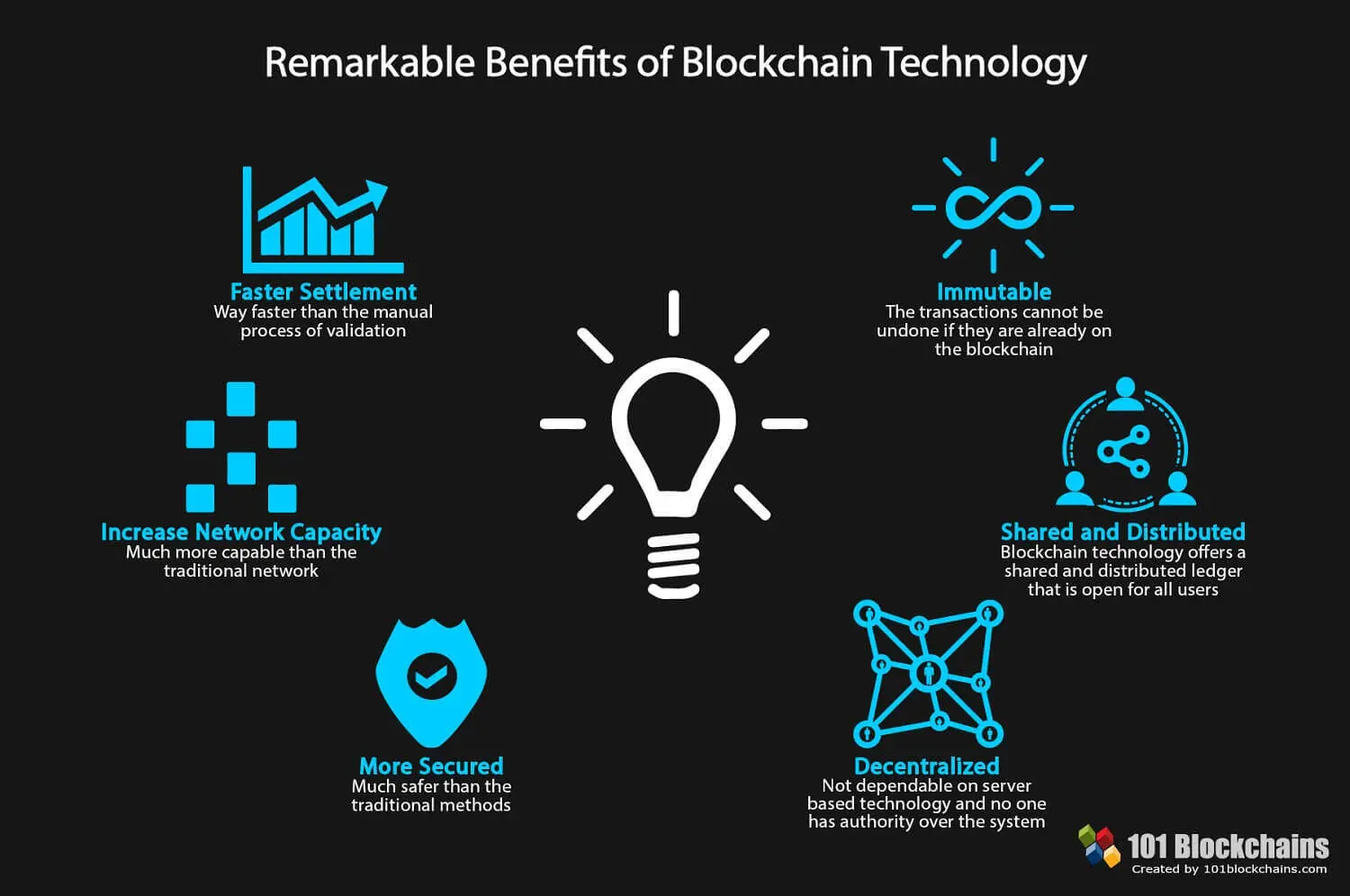A PwC analysis of blockchain technology shows that the innovation has the potential to boost global gross domestic product (GDP) by US$1.76 trillion over the next decade.
The PwC’s Time for Trust 2020 report analysed the top five uses of blockchain and ranked them by their potential to generate economic value. The report measures the technology’s potential in creating value across industry including healthcare, government and public services, manufacturing, finance, logistics and retail.
With the potential impact blockchain could have on the global economy, Africa risks being left behind if trends in countries like Nigeria are anything to go by.
Read: Why Bank of Tanzania is worried about cryptocurrencies
Early this month, the Central Bank of Nigeria (CBN) banned the trading of cryptocurrencies despite the West African nation being the world’s second-largest Bitcoin market after the United States.
The move by CBN to cracking down on the trade of cryptocurrencies is retrogressive especially because Nigeria is Africa’s biggest economy and any move towards financial and economic wellbeing for the nation should be encouraged.
If this spills over into the rest of Africa, then the continent will miss out on a big part of the 4th Industrial Revolution (4IR).
Blockchain technology has for long been associated with cryptocurrencies but there is so much more that it has to offer. With the onset of the Covid-19 pandemic, organizations are grappling with the impacts of the many disruptive trends that have been accelerated. The PwC report analysis shows the potential for blockchain to support organizations in how they rebuild and reconfigure their operations underpinned by improvements in trust, transparency and efficiency across organizations and society.
With blockchain technology being an open and distributed ledger system that can document transactions between two parties, it is efficiently and verifiably recorded permanently.
Consequently, blockchain technologies are coded in open-source protocols through public and private chains. As such, the distributed ledger transactions are recorded and shared by several participants in the blockchain system, without full control of a single entity.
The African Union (AU) High-Level Panel on Emerging Technologies (APET) notes that blockchain technology presents a platform that affords technologies such as cryptocurrency to be developed. In other words, the blockchain can be likened to as the platform for developing other applications (e.g., software such as IOS/android of a smart cellular phone), and cryptocurrency as the resultant application (e.g., Uber or WhatsApp in a smart cellular phone).
Therefore, blockchain is the platform and cryptocurrency technology is an application that operates through the parent blockchain platform.
For example, cryptocurrencies, such as Bitcoins, Litecoin, Ethereum and Stellar, among others, have developed tremendously in the past decade through the blockchain-enabled platforms. There has also been cryptocurrency mining, which generates investments through trading using mathematical modelling codes of the distributed ledger.
Africa is increasingly advancing socio-economic growth through the adoption of cryptocurrency transactions and blockchain technologies for e-commerce and entrepreneurship frameworks.
Fundamentally, the African continent is progressively embracing mobile cash and virtual currency technologies.
This is because such technologies are offering multiple advantages towards easing the way of doing business transactions across the African continent, notes the AU.
The AU notes that there is still some hesitation within Africa’s governments towards fully adopting and adapting blockchain technologies to enhance digital financial services. Principally, part of the sluggish embracing blockchain technology is due to the decentralization of the technology, making it difficult for governments to control.
However, such disadvantages should not discourage the adoption of blockchain technologies, including cryptocurrencies, because of the upsides that blockchain technology-based solutions can bring for Africa’s challenges.
Various reports indicate that Africa is reported as the second highest population that remains without banking facilities and technologies among adults in the world. This population is approximately 350 million people across the continent, totalling up to 17 per cent of the global population.

Blockchain technology can support Africa’s financial digitalisation and this digital revolution can rescue numerous of Africa’s economies. Such a digitalisation process is effectively enhancing service delivery with certain products and services through efficient institutional digitalisation processes and data management technologies.
Read: South Africans partner with Tanzania for Blockchain growth
Therefore, these management systems are addressing transparency and value-chain management systems challenges such as the pharmaceutical distribution systems. For example, the Covid-19 pandemic has significantly impacted, exposed, and dismantled the supply chain of essential commodities and services in Africa. The adoption and adaptation of blockchain technologies can help institutions manage and formulate robust supply chain systems for the African continent.
The blockchain-enabled data management technology can also be incorporated into robotics, artificial intelligence, and other 4th Industrial Revolution technologies for their better operational frameworks. In addition, the transparency within the data management systems is helping governments around the world efficiently keep track of tax collection, monitoring, evaluation, and management. It is also enabling efficient management and monitoring of the entrepreneurial, public service, immigration, healthcare, and education systems.
Thus, boosting Africa’s socio-economic development and operational systems. Additionally, through the distributed ledger technology, families can easily keep records of their property and land rights. Thus, allowing families to monitor and manage their ownership trail so as to protect their property over time. As such, blockchain technologies are allowing companies and individuals formulate smart contracts that are embedded with specific instructions for future use within the platform and afford the transfer of goods and money across borders. Thus, reducing the stress of bureaucratic processes brought about by intermediary financial institutions.
Small-to-medium enterprises (SMEs), through data management systems enabled by blockchain technology, can generate decentralized digital ledgers that can assist with micro-loans and financing applications. As such, blockchain-enabled data management systems decentralize access to financial services and provide inclusivity for SMEs’ owners towards the utilization of banking and financial institutions. Furthermore, blockchain technologies are enabling crowdfunding through a secure platform of blockchain-enabled technologies.
Thus, African governments and investors can track and monitor how crowdfunding is being utilised by the SMEs of interest, for auditing purposes across the value chain.
Notably, Africa is currently having a quiet discussion on digital currencies and associated emerging technologies.
However, China and the Europe Union are currently testing and implementing blockchain-enabled financial technology options. In some cases, their central banks are weighing options of incorporating cryptocurrencies and other blockchain-related technologies into their business and financial systems to accomplish superior security and stability. In contrast, Africa is falling behind in that crucial conversation.
Thus, the appropriate involvement of Africa governments, the private sector, and all stakeholders involved in blockchain-enabled technologies is urgently needed. For instance, the investments and initiatives from such conversations and partnerships can potentially incorporate the predominant informal business activities observed across the African continent. Consequently, this can secure the informal business sector through accelerated participation and an inclusive financial sector.
Unfortunately, several African countries have banned the utilization of blockchain applications such as cryptocurrencies. Consequently, this becomes a limitation towards socio-economic growth because of fears associated with financial fraud, difficulty in taxation control measures, and illicit financing of terrorist operations.
Regardless of such challenges, cryptocurrencies are still touted as the solution to the unbanked Africans because they afford easier access to financial capital investments in the remotest communities. Furthermore, developing nations, particularly African countries, can take advantage of the blockchain-linked technologies to provide alternative means of financial solutions and exploit the benefits of cryptocurrencies across the continent. This can accelerate the aspirations as outlined in Agenda 2063, Science, Science, Technology, and Innovation Strategy for Africa (STISA-2024) across the continent.
The specific vision of Blockchain Technologies in Africa’s infrastructure is clearly outlined in the upcoming African Union High-Level Panel on Innovation and Emerging Technologies (APET) report, titled; “Powering the African Vision: Harnessing Blockchain Technology for Africa’s Transformative Governance.”
African governments are encouraged to explore blockchain-enabled technologies to develop the required enabling policy, infrastructural, regulatory, and ethical frameworks. These frameworks can provide blockchain investment opportunities and business solutions for the African continent.











